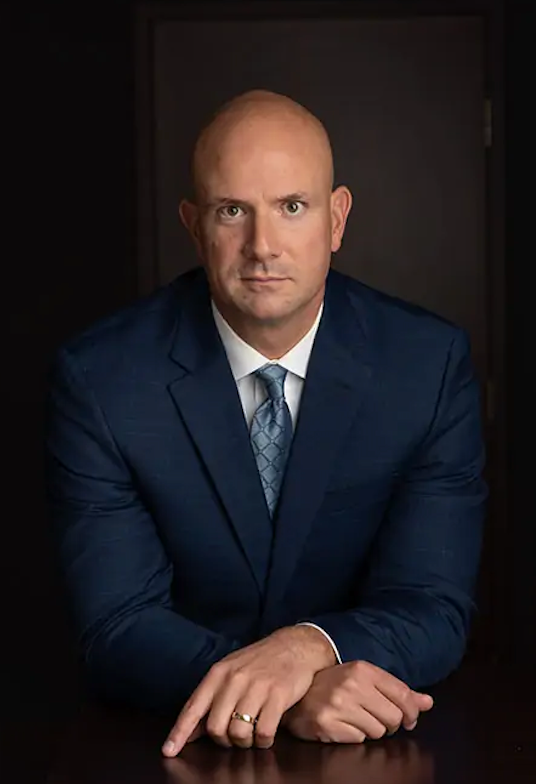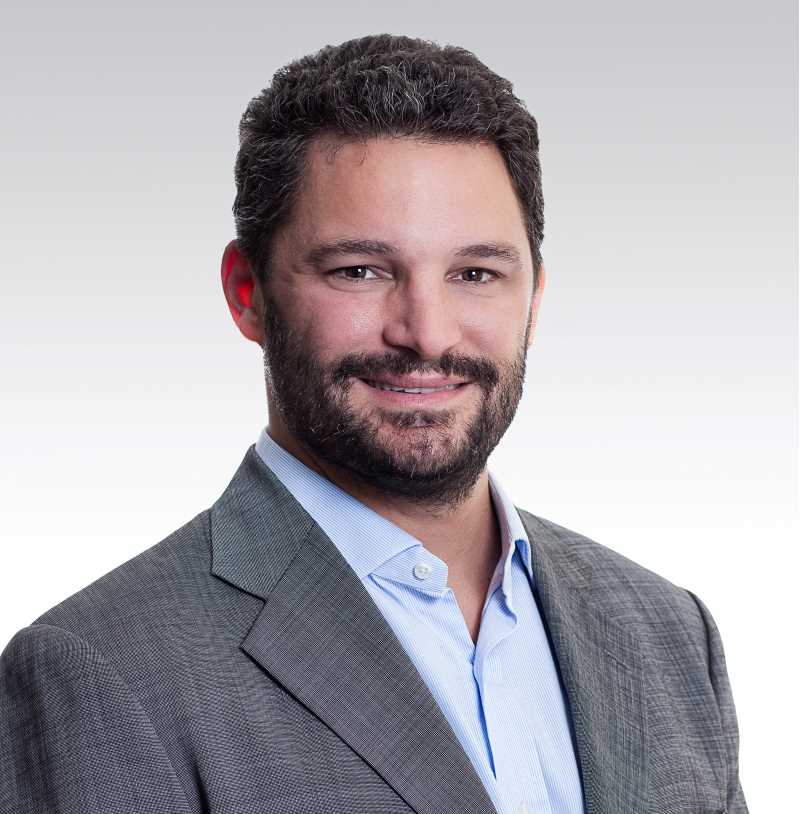Transcripts

Erik: Joining me now is New York Times best selling author and Bear Traps Report founder, Larry McDonald. Larry, it's great to get you back on macro voices, it's been too long. I want to dive right into Fed policy but with a twist. I've been talking to a lot of guests recently about this balancing act the Fed has gotten itself into. Where they're kind of backed into a corner now to where, you know, they need to hike in order to fight inflation, yet they need to cut in order to prevent markets from having a meltdown here. It seems to me there's a whole other dimension to this conundrum that very few people are even talking about, which is we've got a debt ceiling showdown coming up this year. And it's going to be I think, more interesting. I think the fireworks will be more interesting in an environment where Fed policy is already constrained. So how does the debt ceiling factor into monetary policy?
Larry: Well, what's amazing about it is you have a dynamic toward the middle of the year of 2023, where you're going to have about $1.2 trillion of treasury issuance in arrears that are going to have to get cut and because right now, Janet Yellen and her team are really suppressing issuance because of the debt ceiling. And all of that issuance is going to have a colossal catch up from late July, early August, all the way through the end of the year. And then there's the normal financing period. And so this is a dynamic that is so powerful. I think that if the economy turns which we think it's going to, we could see the Federal Reserve in the yield curve control, QE by the fourth quarter, because there's just so many bonds that have to be sold to the public.

Erik: Joining me now is Adam Rozencwajg. Co-founder of Goehring and Rozencwajg, a commodity research firm and fund manager. Adam, it's great to have you back on the show. I want to start out with you know, the last time we talked, you and I were in strong agreement about something that well, either we were wrong or it hasn't happened yet. And that is that we both thought there would eventually be a very significant increase in energy prices due to lack of supply because of insufficient investment. I still hold that view, although it's on hold until the coming recession plays out. It seems like the expectation that increasing Chinese demand was going to be the catalyst that would really take things forward. It was going to change everything... Didn't really happen. Now as we're speaking, we've just had a surprise OPEC announcement which has jerked the oil markets considerably higher. But that was a reaction to a surprise move on OPEC. Before that, we were really plumbing lows that you and I didn't expect to see last time we talked. So what happened? Has the outlook changed? Is the hypothesis different now or is it just a matter of waiting for things for the market to stay irrational for as long as it can before it finally turns on our direction?
Adam: Lots of great questions and thanks so much for having me back. Happy to be here. Really looking forward to our discussion today. So, before we started recording, we confirmed here that we said the last time we spoke was last July, so July of 2022. And as you mentioned, depending on exactly when, in the month we spoke, but natural gas prices here in the US were probably around $7 and oil prices were over $100. And here we are, we outlined, like you said a very bullish view a year ago or just under a year ago. And here we are today before the OPEC announcement, oil was down to 70 and gas, which is even more shocking was all the way down to 2 bucks. You know, which is basically approaching the all time or 20 plus year low, which reached about $1.91 or so back in the summer of 2020. So like you said, the question is what's happened. And for the most part, in fact throughout, I would say that everything we talked about last year is still very much true. And when we look back five, six years from now, we're gonna say what was this decade about, and it'll have been about the decade of shortages. And the reason for that is because we just have not spent enough money in the sector. It's really as simple as that. If you look at capital spending in the energy business, you're still down 60-70%, from where you were in 2014. And you're almost at the all time low, you're up a little bit off the COVID lows, which is sort of understandable. But you're still 30% below pre-COVID levels on oil and gas spending. And so until you fix that problem, you're really not going to change the bigger theme here.
Where we did get things, we were early is that we had expected the fourth quarter of last year to be a really tight pinch point in global gas markets and global oil markets. And that didn't come to pass. And there's some really interesting reasons... Why? The fourth quarter normally is a period of very strong demand for both natural gas and oil. A lot of it has to do with the weather, you know, as things are cold. We use natural gas to generate electricity for air conditioning in the summer, but we use a lot more of it for heating purposes throughout the winter. And so winters are typically most energy intensive season. And this past winter, we just had incredibly mild weather in both the United States and in Europe. And something else happened from a gas perspective in the US. And that is we lost one of our biggest export terminals, the Freeport LNG natural gas export terminal down in the Gulf Coast. That caught fire back in April of last year. It was 2 Bcf/d and that was offline for over 200 days. So it's about 400 Bcf (billion cubic feet) of natural gas demand that we effectively lost last year. And we saw inventories in the US increased by about 400 Bcf/d. Thy are 4 BCF or other total relative to averages. So I think that's entirely explained by the fact that we lost Freeport.
And then in Europe, they went from a very, very tight gas market to a very loose gas market, because winter just never came. And you and your listeners may have heard articles or listen to podcasts alluding to that. But when you look at the numbers, it's really, really shocking. You're talking about the warmest winter in Europe in 40 years. And thank God that happened. It really got them out from a very, very tough spot with Russian gas volumes curtailed after, you know, first of all the Russian invasion of the Ukraine and then the Nord Stream pipeline issues and things of that nature. You lost 15 Bcf a day of your imports. That's huge. And the only way that they could be bailed out being Europe was by really, really mild weather and that's what they got. So that explains the gas market. The question, of course, is now when you look forward in the US here, Freeports back up and running again. So those two Bcf a day are flowing, that demand is back. And in the rest of the world, the question now turns to okay, great, we had this warm winter, we can either hope we keep getting record warm winters, or we're going to have to find some way to replace that 15 Bcf a day of Russian pipe imports. And if you were to put that all in the LNG market, the liquefied natural gas seaborne market where you cool gas and to tankers, and you put it out on the water and in vessels, that would be like a 35-40% increase, 35 of a percent increase in the global LNG market. So that can't be absorbed. So I think you've now gone from what would have been a bullish macro story, you know, long term macro story with a very, very near ter acute pinch point being the fourth quarter last year, that's clearly been pushed out. But you haven't changed any of the main big picture macro drivers in the energy market, which still points to very, very, very, very tight balances going forward.

Erik: Joining me now is Charlie McElligott, Nomura's cross asset macro strategist. Charlie, what a perfect week to get you back on the show because your team is really good at looking at market internals and the flows and so forth. Here's my question. If Bear Stearns just happened and I contend it did, it's called SVB. And you're not sure if Lehman is about to happen next. How do you tell because the Fed and other government officials have a strong incentive to lie in order to shore up confidence? What can we look at in the market to tell whether this banking crisis is a flash in the pan that's already over or if it's something that's just getting started?
Charlie: Appreciate being here. Great to speak with you again. Look, this is one of those rare opportunities where I get to kind of step back from very tactical flows, and look at some actually larger structural, strategic stories. And, you know, that is exactly what's happened over these past few weeks with regards to you know, both the the US regional bank dynamic as well as the, you know, the EU bank story, with SIVB, and Signature, and SI, and Credit Suisse. You know, all of those fails are idiosyncratic symptoms of this larger bank profitability crisis becoming a solvency crisis. And, you know, as it relates to your question, these are long term structural dynamics for banks, whose kind of profitability models were built for an era of 0% interest rates and an era of large scale asset purchases, and an era of slowflation. And we're seeing, you know, the emperor has no clothes pretty clearly here. And, you know, as it relates to, you know, too flat yield curves, as it relates to higher cost of capital, wider credit spreads for banks, and all that means negative carry. So, you know, NIM compression, you know, it's a future state of enhanced regulation and forced capital raises.
And all of that is against this, you know, huge headwind. That's really the catalyst here, which is this continued deposit flight story. Too low deposit rates, versus customers who are then being incentivized to continue shifting money out and into money market funds that sit at the RRP or direct into bills that are offering magnitudes higher premium. So it's that two-tiered US banking system. You know, Janet Yellen got absolutely pinched on her testimony two weeks ago, and that clip that went viral. And basically, it's telling you that there's like a structural long term placeholder trade here. It's like long the major banks versus short regional banks, and the implications of it from the big picture is that, you know, this profitability and solvency crisis becomes a massive financial conditions tightener. And ultimately, you know, in a fractional reserve banking system, where, you know, this is the transmission mechanism for US economic growth. The global economy is going to get toasted, because these banks are going to go into zombie mode, at best and at worst, it means that, you know, credit and lending doesn't flow out into the economy. So it's a really big story. It's a really significant story. And it's where this cycle that's kind of been on this, you know, slow autopilot for the last while, as you know, fed hiked rates and without a lot of market impact. Now, it's really taking a turn.

Erik: Joining me now is Luke Gromen, founder of Forest for the Trees. Luke, what a week! The big news, of course, that came out over the weekend was the failure of Silicon Valley Bank. This is a bank which specialized in setting up fundings for venture capital firms for startups in Silicon Valley. Therefore, a lot of big companies with a lot of cash that was not insured, that bank failed. I think, because of the Fed's hiking cycle. Do you think that that was the cause? And if not, what was the cause? How do you interpret this and what does it mean for the Feds hiking cycle?
Luke: Yeah, thanks for me back on, Erik. I agree, I think it was ultimately the Fed's hiking cycle and really inflation driving the Feds hiking cycle that caused it ultimately, you put that bank and a number of other banks in a position where they have to compete with the Treasury market, the short term Treasury market in particular money markets, money market funds, where the yields error, call it at least before today's trading for three quarter percent for 30 day money, give or take. And so that puts the banks in an uncomfortable position of either having to raise deposit rates, which will put pressure on net interest margins and earnings, which is never popular with bank management's and bank investors or they need to sell these bonds to fund the deposit outflows. But the problem is, is there are these were supposed to be high quality liquid assets. And they've been not so liquid, and they are down on price. And so banks, and I'm not an expert on bank accounting. So take this with a grain of salt. But the gist of it is that the banks don't have to take a mark on big chunks of their securities books, unless a couple of things happen. One of those things being if they sell the bonds, so they would have to mark losses, and that would also hurt earnings, or they have to issue a bunch of equity, or raise otherwise raise capital to replace the deposit funding, the cheap funding as as the deposits go elsewhere, looking for yield. And so it's it sets up a choice of a number of choices for banks that all of which either hurt earnings or margins, are hurting margins, or dilute shareholders. None of which they are really big fans of so I agree with your assessment of it.

Erik: Joining me now is GaveKal co-founder Louis Vincent Gave. Louis, I've interviewed you quite a few times over the last several years. And if there's anything I've learned, the best way to approach an interview with you is take whatever the one really big macro theme of the day is and ask you to sort of frame that in terms of what the markets are telling us. Just one problem. I don't know how to decide! There's so many big macro themes, from geopolitics to energy to everything else. What's the biggest theme in your mind and what should we talk about this week?
Louis: Well, first thanks again for having me Erik. I really enjoy our conversations so thank you so much. To your question, to be honest, I'm as confused as you are. And I want to say this and really no modesty today. It is very hard to parcel things out. As you point out, you want to strip out the signal from the noise and all that stuff. But I think there's so many moving parts right now that I think any investor, the first thing we have to acknowledge is to be very humble, to accept that we're going through things that, probably no investor below 75 has gone through and you know, I've got a whole list, I'm happy to rattle off. But, the first thing and I know, you've done a number of episodes on this, but, we're going through the end of the peace dividend, right? I know, you've called it world war three. Some people call it the start of a new Cold War. Either way, we have the end of the peace dividend in here. I love what our mutual friend Luke Gromen pointed out the other day is if truth is the first casualty of war, then bonds is a close second. War is always and has always been inflationary, whether a Hot War or a Cold War. So that's for me as a first important, obviously, big marker. Wherever you care to look in the world every meaningful economy is increasing its defense spending. Whether in Europe, in China, obviously, in Russia, obviously in the US. And military spending is fundamentally unproductive spending. You’re spending money on a bunch of things, high priced items that you hope you never use. So that's a first dramatic shift. Unless you were investing 30 or 40 years ago, you're not used to rising military budgets, you've always had sort of shrinking military budgets.
Now against this, the second massive shift is, most countries are going through a very important demographic transition. Most countries are aging and aging fast. The big pools of excess labor in the world that used to be China, India, Mexico, places where women would have 2, 3, 4, 5 children per women now have less than two children per women. And so we are going through, you know, an aging in our societies, and just looking globally across the world. We no longer have somebody like China adding an additional 20 million workers to the workforce every year. And for me, that's a paradigm shift. I know a big theme of yours has been the energy transition. And it's been one of mine as well, we've talked about this before, my go to line is that economic activity is energy transformed. And really the story of the past 250 years, the story really of rising wealth levels, rising disposable incomes, is fundamentally a story of humanity, always moving to more efficient methods of producing energy. You know, you start with coal, you move to whale oil, you move to oil, you move to natural gas, you move to nuclear. And for the past 10-15 years, we've decided, let's move away from all this and move towards more inefficient energies. Wind, solar, and we need to do this because otherwise we're going to destroy the planet. But in so doing, there's a tremendous economic economy cost and economic cost is, you know, means lower living standards. Higher energy prices means lower living standards. So we're going through this energy transition. And that's another big uncertainty out there.
But for me, perhaps the biggest, most important structural question is whether the monetary system such as we've known it for the past, really 70 years since World War Two is in the process of changing and you and I have talked about this before, but cutting off the biggest commodity exporter, namely Russia from the US dollar system, I think basically amounted to cutting our nose to spite our face. I know we don't like Russia, I know they're bad people. I know all these things. But the fact that we're now seeing deals for oil, deals for iron ore, deals for coal being done in Renminbi, Rupees, Thai Bahts. I think we've started a structural shift and the global monetary system and these things, of course, don't happen overnight. But that to me adds a lot a lot of uncertainty in the world that we live in. And then against that you have all the cyclical uncertainty. So you got these, for me these big four structural forces that add just enormous uncertainty for lack of a better word.
And then you got the cyclical stuff, you've got a Fed that's tightening, while on the fiscal side in the US, you're still running massive budget deficits, municipalities, state federal level of spending money willy-nilly. You have the second biggest economy in the world that had been locked down for three years that is reopening. And a Chinese government, I know we talked about the Xi pivot. Last time around, most people looked at the Xi pivot thinking, okay that was just the opening. It's not just that. It's getting rid of the red lines on real estate lending. It's recapitalizing the local authorities to get local infrastructure spending again. So you got all these things going on. And what fascinates me is that most people you talk to only want to talk about the Fed all day, every day. Because I think as you know, through the years of QE, through the years of zero interest rates, we raised an entire generation of investors to just worry about what the central bank was doing, and to basically build all their investment decisions on that one factor, on what is the Fed doing. I think, given all these forces that I've just described, what the Fed does actually matters less and less. We’re seeing it now right? The Fed is tightening but, meanwhile, inflation stayed strong. And growth in the US is actually not as bad as people thought it would be and growth around the world, as you know, and inflation around the world are turning out to be still decently high. So I think against all this uncertainty, you have to be very, very modest. You have to look at the markets and say what messages am I getting from the markets today?
And personally, the message I'm getting is, bonds are done for. We’re now entering a second year where US Treasuries are losing money. OECD government bonds serve no purpose in portfolio. We're now entering the second year where emerging market bonds are up, outperforming OECD government bonds. For me, these are important, important messages. Energy stocks are volatile, but they continue to do pretty well in spite of an energy price that has remained stubbornly low. And that, to me is a big mystery. Why isn't energy rallying more but again, we have to be modest. There's dramatic shifts going on in the economy and to think, you know, I love to work with decision trees. It's like, okay, you ask a question, you go, yes-no, etc. But when you have 5, 6, 7, 8 questions and each time you have a yes-no answer, your decision tree gets to be too many branches. It's like being a chess player. I was a very modest chess player in my youth, I could think maybe three, maybe four moves ahead. The great chess players think eight, nine moves ahead, and they've got everything mapped out. Unfortunately, I was never that guy. And so um, in all honesty, I find today very, very tough.
MACRO VOICES is presented for informational and entertainment purposes only. The information presented in MACRO VOICES should NOT be construed as investment advice. Always consult a licensed investment professional before making important investment decisions. The opinions expressed on MACRO VOICES are those of the participants. MACRO VOICES, its producers, and hosts Erik Townsend and Patrick Ceresna shall NOT be liable for losses resulting from investment decisions based on information or viewpoints presented on MACRO VOICES.
